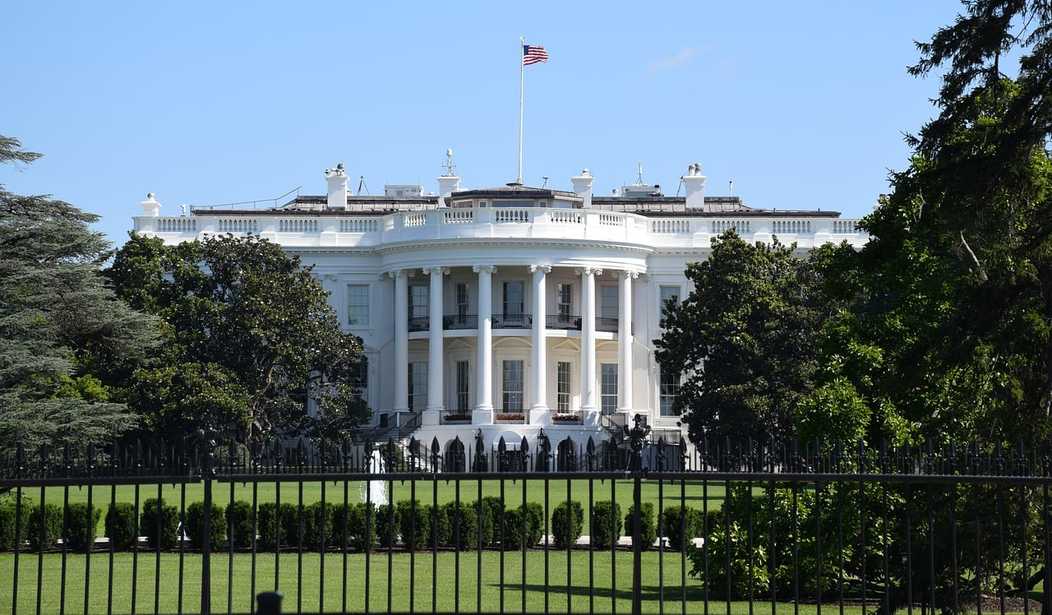Throughout last summer, we saw tons of people screaming about defunding the police. When the election came around, those same people voted for the current occupant of the White House.
President Joe Biden was more than happy to take their votes. However, now that public perception has turned against defunding law enforcement, the president is in a bind. It’s been his party calling for this. How can he keep from losing both chambers of Congress in the midterms?
Well, it seems their plan is, surprise surprise, to blame Republicans.
The White House is responding to relentless Republican charges that it wants to “defund the police” by embracing the message that there are, in fact, politicians angling to starve law enforcement of needed money: congressional Republicans.
The White House launched the counteroffensive as advisers push to shore up President Joe Biden’s low approval on crime and fight an attack that could damage Democrats in the midterm elections next year.
Congressional Democrats are amplifying the push, highlighting their support for bills that would boost money for policing. They cite Republican opposition to the measures, along with the party’s lack of interest in investigating the Jan. 6 attack on the U.S. Capitol, which left a police officer dead and many more injured, to claim that Republicans aren’t the party of law enforcement.
“I think it’s important that people are educated on this issue. And I think it is significant that Republicans have chosen not to support, with their dollars and their votes, the police as well as our armed services,” said Rep. Chrissy Houlahan, D-Pa., who was part of the class of 2018 that flipped control of the House to Democrats.
The White House touts the $350 billion in state and local funding under Biden’s Covid-19 aid law for helping keep police employed. His budget requests $651 million for the Community Oriented Policing Services program — or COPS — a major increase from last year. Biden has also sought to sell his gun control proposals as an attempt to combat violent crime and mass murders.
“The president, with the backing of leading law enforcement groups, secured the money that his predecessor opposed — to keep cops on the beat — and every single Republican member of Congress voted against it,” White House spokesman Andrew Bates said. “The GOP continues to oppose the American Rescue Plan even as it delivers the rehiring of police in their districts.”
Except, fighting against funding for COPS is far from defunding the police. For one thing, it’s not a consistent source of funding for departments. Some will get a grant this year but not one the next year. They have to apply for that grants and be approved, meaning it’s “extra” money for departments, but not having it is far from trying to cut money out of the budgets for local departments.
Which, it should be noted, is exactly what a number of Democrats have expressly called for.
Meanwhile, though, it should also be noted that COPS is far from the only federal program available to local departments. Hell, even the program’s website acknowledges this.
One of the biggest challenges in administering a law enforcement agency is managing the budget, finding new ways to meet a growing number of public and officer safety needs with limited resources.
But there are a wide variety of entities, both private and public, that offer grant funding to local, state, and tribal law enforcement for training, vehicles, equipment, hiring, and programs of many kinds.
The list below is a small sampling of available sources, and it should be noted these can change from year to year. But also keep in mind that there are many others out there and that it pays to think creatively, casting a wide net. You never know where an opportunity may come from.
It goes on to provide a list of potential grants. Here are some that aren’t COPS-related:
- The Office of Violence Against Women (OVW)administers 19 grant programs designed to help reduce domestic and dating violence, sexual assault, and stalking. OVW also administers a Technical Assistance Program to provide grantees with training, expertise, and problem-solving strategies. Information for funding applicants can be found on their site.
- The Office of Justice Programs (OJP) offers grant assistance to support law enforcement equipment purchases, including most special operations gear, as well as the Edward Byrne Memorial Justice Assistance Grant Program (JAG), which awards funds for a variety of public and law enforcement safety purposes. The OJP Grant Application Resource Guide provides information for these and the following three OJP programs:
- The Office for Victims of Crime (OVC) supports communities responding to terrorist attacks and mass violence as well as providing relief for immediate and ongoing victim assistance services.
- The Bureau of Justice Statistics (BJS) provides financial and technical support to states in improving the accuracy, utility, and interstate accessibility of criminal history records.
- The Bureau of Justice Assistance (BJA) provides information, training, and technical assistance to state and local officials responding to school shootings or mass violence. Its Project Safe Neighborhood (PSN) offers funding for crime reduction efforts to local, state, tribal, and federal law enforcement agencies
- The National Institute of Justice (NIJ) awards funds for crime research, development, testing, training, and technical assistance projects.
- The Office of Juvenile Justice and Delinquency Prevention (OJJDP) awards grants to support programs, research, training and technical assistance, and information dissemination activities.
For more information on these and other DOJ grants, see The DOJ Program Plan, a tool to help applicants and grantees find funding opportunities managed by the DOJ grant-making components.
The U.S. Department of Agriculture (USDA)offers grants and low-interest loans to support public safety services such as police stations, vehicles, and prisons in communities with populations of 20,000 or less through their Rural Development Community Facilities Direct Loan and Grant Program.
The U.S. Department of Health and Human Services (HHS)offers grants for communities fighting the opioid crisis. These include the Health Resources and Services Administrations (HRSA) Rural Communities Opioid Response Program and the Substance Abuse and Mental Health Services Administration’s (SAMHSA) Tribal Opioid Response Grant.
There are others and the COPS site notes this is far from an exhaustive list, and I didn’t list everything they did. In other words, there are still tons of federal programs available and no one is talking about reducing funding for those.
Yet the problem is that the COPS program hasn’t been a slam dunk. There have been issues with it from the start.
To decide that maybe we shouldn’t increase funding for a program that simply hasn’t worked as advertised is far from a “defund the police” position. What’s more, the White House knows this. They know it and they know that they can’t allow the American people to know it. If they do, their whole house of cards will collapse.
Then again, when it’s built on such a fraudulent foundation, that shouldn’t be surprising.








Join the conversation as a VIP Member